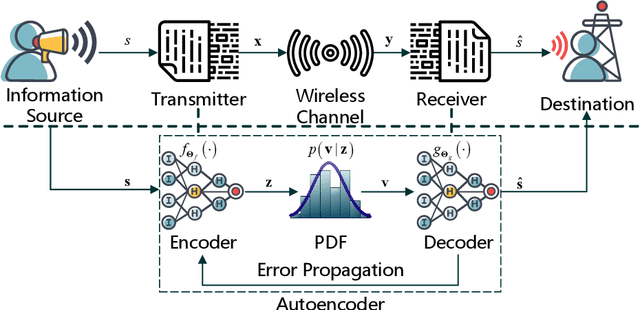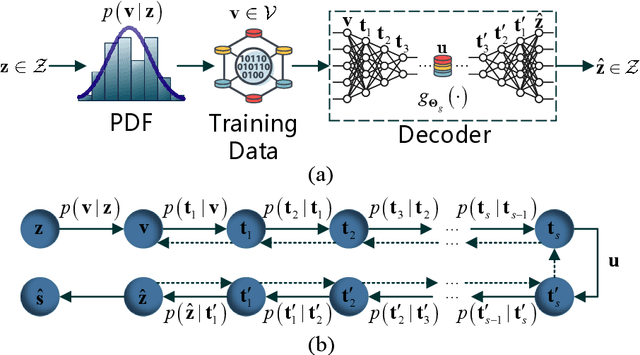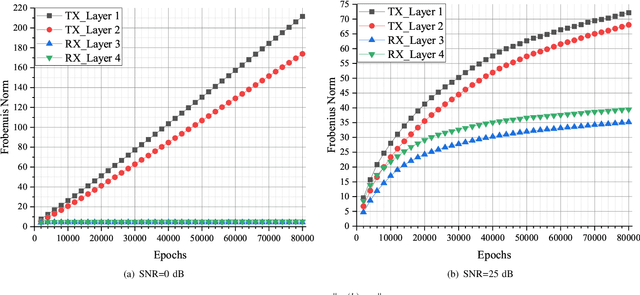Theoretical Analysis of Deep Neural Networks in Physical Layer Communication
Paper and Code
Feb 21, 2022



Recently, deep neural network (DNN)-based physical layer communication techniques have attracted considerable interest. Although their potential to enhance communication systems and superb performance have been validated by simulation experiments, little attention has been paid to the theoretical analysis. Specifically, most studies in the physical layer have tended to focus on the application of DNN models to wireless communication problems but not to theoretically understand how does a DNN work in a communication system. In this paper, we aim to quantitatively analyze why DNNs can achieve comparable performance in the physical layer comparing with traditional techniques, and also drive their cost in terms of computational complexity. To achieve this goal, we first analyze the encoding performance of a DNN-based transmitter and compare it to a traditional one. And then, we theoretically analyze the performance of DNN-based estimator and compare it with traditional estimators. Third, we investigate and validate how information is flown in a DNN-based communication system under the information theoretic concepts. Our analysis develops a concise way to open the "black box" of DNNs in physical layer communication, which can be applied to support the design of DNN-based intelligent communication techniques and help to provide explainable performance assessment.
 Add to Chrome
Add to Chrome Add to Firefox
Add to Firefox Add to Edge
Add to Edge